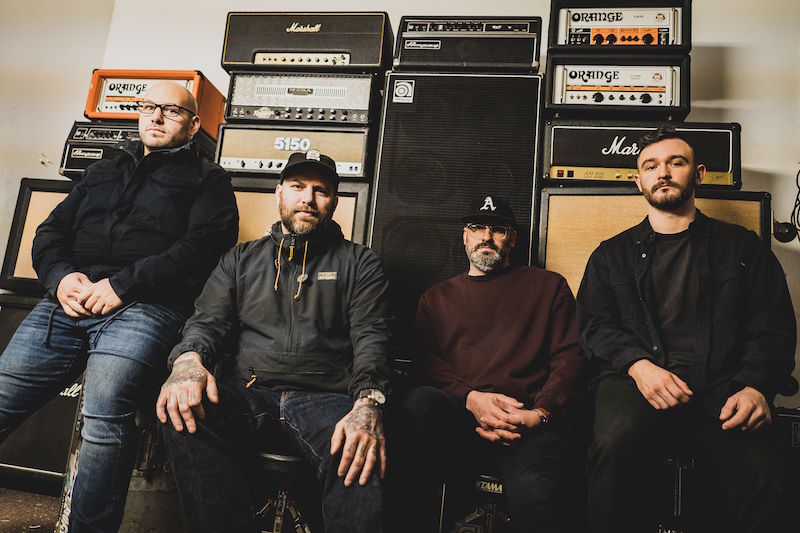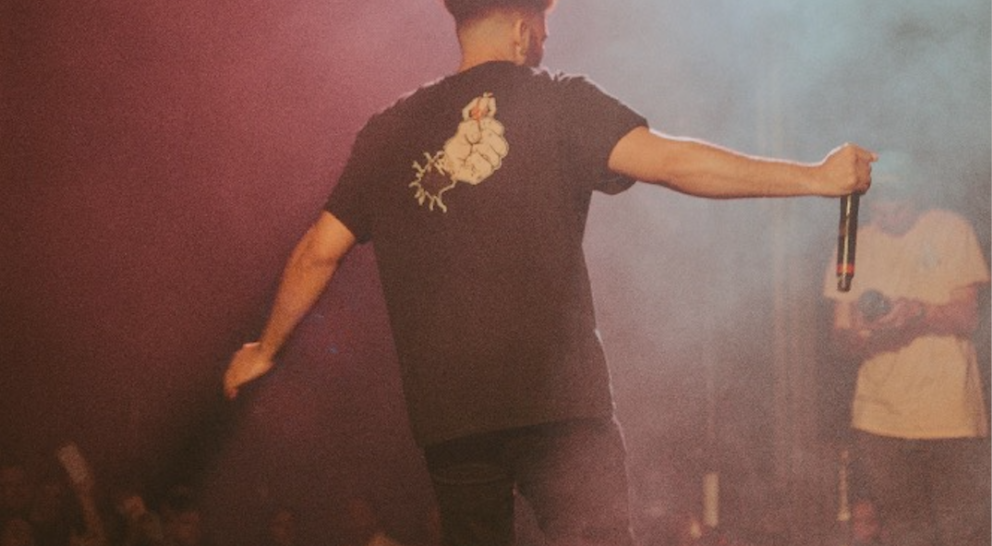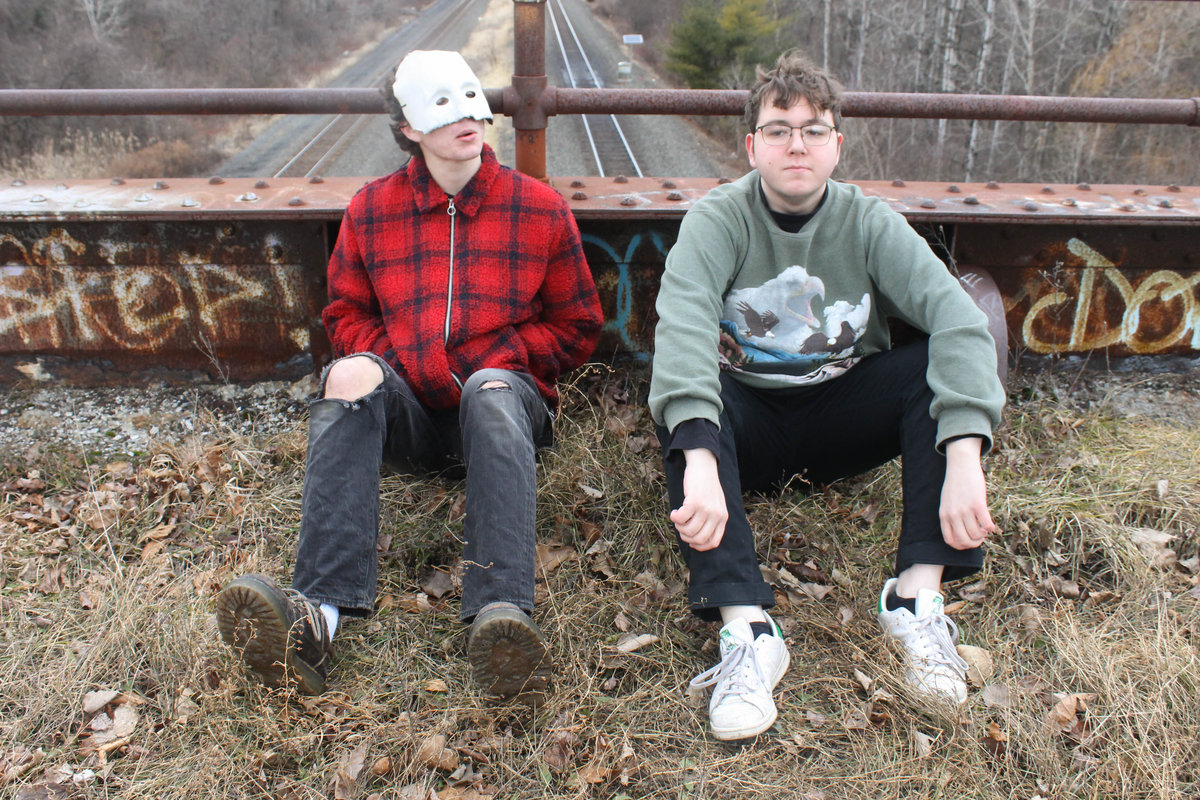Photos by Kiki Vassilakis
Emily Dickinson’s 1862 poem “After great pain, a formal feeling comes” is a succinct reflection on the insurmountable complexity of trauma and grief. Its final stanza begins “This is the Hour of Lead – / Remembered, if outlived,” describing the indefinite period of anguish as an interval of profound heaviness. Author Anne Morrow Lindbergh likely borrowed the phrase for her 1973 book “Hour of Gold, Hour of Lead,” a collection of memoirs about how her idyllic marriage with Charles Lindbergh turned into a tabloid horror story after their baby was kidnapped and murdered.
When Joe Cammarere read Lindbergh’s book in high school, the idea that one’s life could–at a moment’s notice–jolt from beautiful to bleak resonated with him. He also thought the phrase “hour of lead” sounded cool enough for a band’s name. Roughly 20 years later he’s finally putting it to use. Except, in this context, their namesake is more applicable in a literal sense.
Hour of Lead’s debut EP, which dropped last month via Albany’s Fuzz Records, features a crushingly heavy blend of metallic hardcore, sludge and post-metal. Nevermind the “hour,” their sound is timeless. But their hulking riffs and toe-smashing rhythms evoke the dull weightiness of lead. These five songs feel hulking while lunging out of the speakers; that echoes the band’s only conscious goal going into the project.
“We kind of just wanted it to be as heavy as possible,” Cammarere tells The Collaborative.
Although Hour of Lead is a young project, the 37-year-old Cammarere is a veteran of Albany’s heavy music scene. He was born in Schenectady; right after he graduated high school he moved to Albany, where he’s lived ever since. He picked up a guitar at 12 and worked his way through Black Sabbath and Metallica. At 16 he started going to hardcore shows throughout the Capital Region, where he really formed a sense of identity.
“I always felt like a weirdo and it just felt like a bunch of weirdos and freaks playing music,” he says.
He never stopped liking metal, but it was the mentality and ethos of hardcore that really drew him into that scene.
“I just felt the same thing with the music [as metal],” he says. “The heaviness, the anger. [But] you could walk up to the person and talk to them about the music they made. The sense of community really spoke to me.”
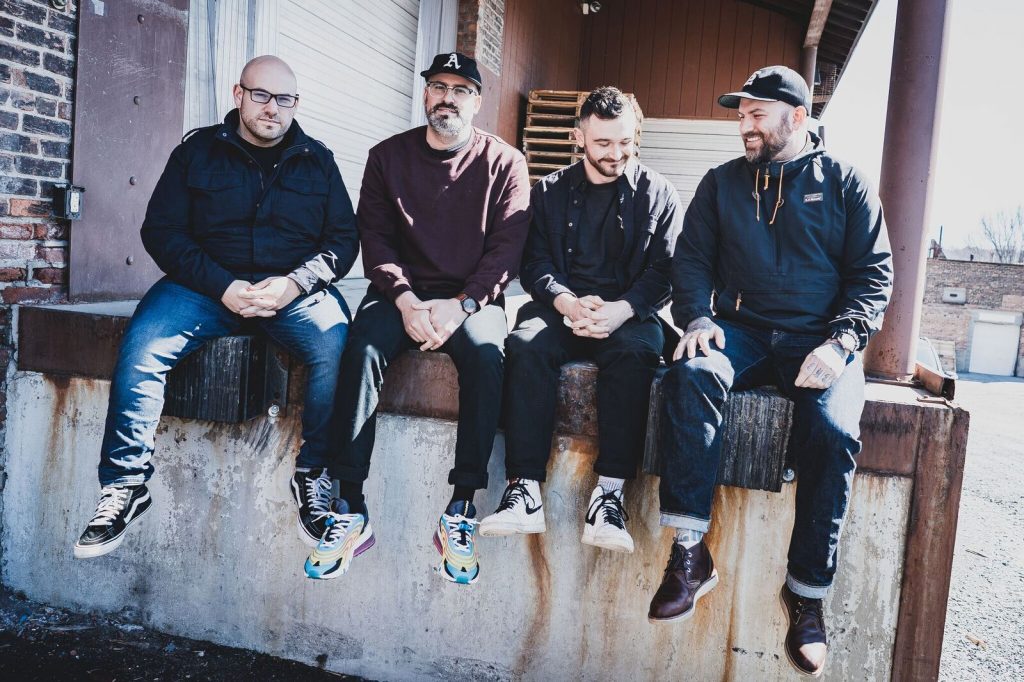
Cammarere came of age at the end of the ’90s, so he began participating in Albany’s scene during a notable transition period. Bands like One King Down, Stigmata, Section 8 and Dying Breed had been enjoying immense local followings and gigging frequently at the venue QE2 (now The Fuze Box) in downtown Albany, but Cammarere says those bands were petering out as he started going to shows. QE2 closed during that period, too, but the now-defunct Valentine’s Music Hall quickly filled the vacuum and kept the scene alive for Cammare’s generation.
“I remember going to Valentine’s two or three times a week sometimes, there were so many shows back then,” he says. “There were some nights [where] we would have 200 kids come out for all local bands at Valentine’s upstairs. It was wild. It didn’t last long, but it was a good time.”
It was during that era that Cammarere joined Lariat and Burning Bridges, both of which rode the line between hardcore and metal. They had solid local followings but never really took off outside the city, and throughout the next decade Cammarere joined four other bands that bounced all over the heavy music spectrum: youth crew hardcore, fastcore, sludge and energetic NYHC.
“A lot of those bands were just my friends and when your friends ask you to do something,” he says, trailing off.
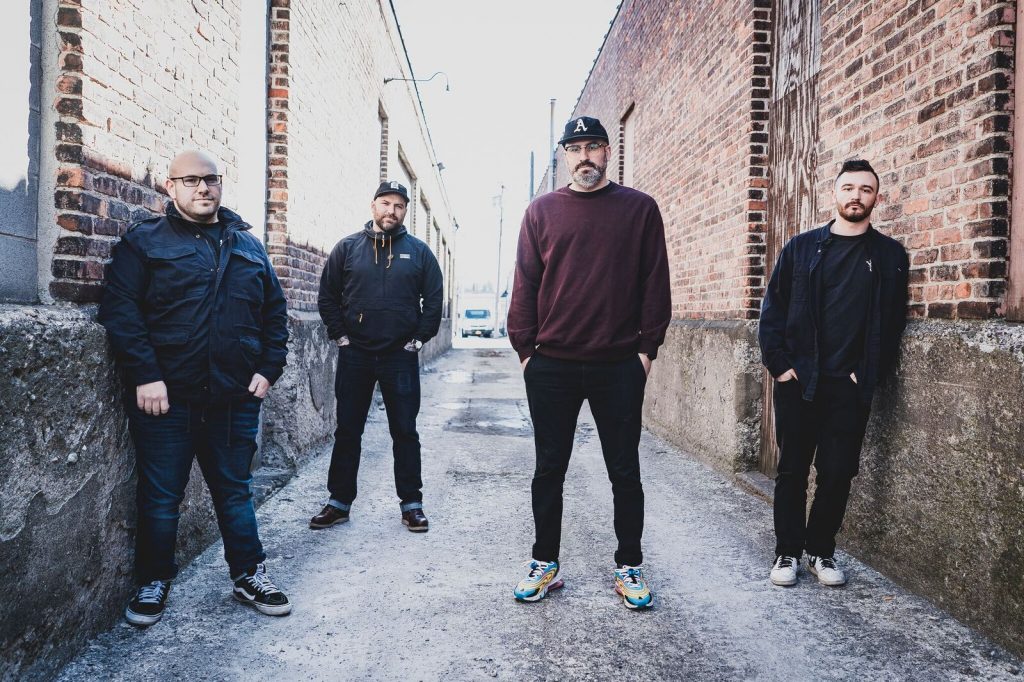
The latter of those groups was the band Born Low, which he formed at the end of the 2000s and played in for 10 years. Beyond a strong local presence, Born Low toured a decent bit and put out music on a handful of labels including Reaper Records (Turnstile, Terror, Trapped Under Ice). Cammarere had a good run with the band, but in 2018 he decided to amicably depart to focus on Hour of Lead, a project he half-started in 2015 with his friend Adam Merendino. Cammarere had played guitar in all his previous bands, but in this one he knew he wanted to be the frontman.
“I don’t know why I’ve always wanted to sing in a band, but that was the goal when we started getting together,” he says.
For this reboot, Cammarere (vocals/guitar) and Merendino (guitar) drafted their friends Justin Louden (bass) and Jack Xiques (drums), who had met through the Albany scene. Cammarere remembers the material he wrote in 2015 as more mosh-oriented metallic hardcore, but this new iteration of the band was shaping into something more nuanced. They tap Crowbar, Neurosis and Ringworm as reference points, but Cammarere says the band is purposefully avoiding locking into a specific style.
“The bands that I’ve done have always been, not rigid, but kind of like: ‘We say what we are and this is what it is and this is what it’s gonna sound like.’ With this, it’s always been: ‘We just want it to be heavy.’”
“But if we want to do something else that’s weird and sounds like Tragedy,” he continues, “then we’re gonna do that, too.”
Although the five-song EP is their first release, the band sounds focused and tight right out of the gate. It’s clearly the work of experienced musicians, not young kids getting their footing. However, although Cammarere has nearly two decades of writing riffs and constructing songs under his belt, he felt completely out of his element while penning lyrics. Especially considering the subject matter is extremely personal.
“Just dealing with depression and anxiety, paranoia, self-loathing and all that throughout my life,” he says. “Like I said, this project has been a lot of years in the making, but in those years for me there was a lot going on that I kind of was able to work through with the lyrics on this record.”
After removing a self-imposed restriction on using the word “I” while writing—hesitant to insert himself directly into the narrative—he found most of the record flowed out easily. However, there was one song he was stuck on until minutes before he arrived at producer Ryan Slowey’s home studio to record. He had asked his bandmates not to join that day so he could work out the kinks of his vocal approach by himself, but the nerves were still getting to him.
“I wrote some of those lyrics in the gas station by [Slowey’s] house,” he admits. “I was so in my head on some of it that I couldn’t finish some of them. I had to do it and I wrote it down and looked at it and I was like, ‘This works.’”
Cammarere seems somewhat embarrassed to mention that tidbit, as he clearly prides himself on quality performances and well-prepared delivery. But after a few sentences emphasizing that he’s never written something last-minute and that it wasn’t an artistic decision to create off the cuff, he seems to accept the approach. After all, Hour of Lead was meant to be a rejection of rigidity and conventions.
“At a certain point I felt I put a bunch of pressure on myself with some of the songs with how I was trying to write them,” he says. “And then I was like, ‘I’m fucked. And I can’t cancel, we gotta get these lyrics done.’ And then, on the way there I got a bottle of water and I was listening to it and it kind of made sense. And sometimes the creative process happens like that. In a weird way.”

